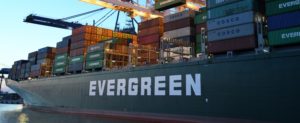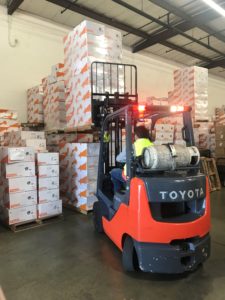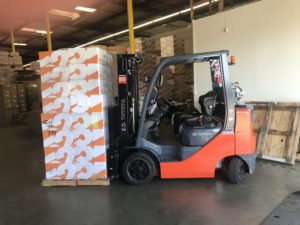Archive for September, 2019
Get Problem-Solving Guides from Toyota
If you’re a Supply Chain Management Professional, you’ve probably got one thing on your mind: how to get products to market quickly and cost-effectively.
Your job is hard. Toyota’s experts want to make it easier.
Our free whitepapers share information, business advice, and problem-solving tips from professionals with years of experience in material handling and supply chain management.
Take advantage of this free resource to learn more about solutions for the evolving seaport, innovative material handling technologies, ports, and the ever-changing logistics landscape.
Material Handling Solutions for the Evolving Seaport
The three most significant challenges for material handling fleets specializing in ever-changing port environments are maximizing efficiency, managing port congestion, and optimizing fleet management. A material handling partner with innovative heavy-duty port solutions that keep up with the newest technological trends is the key to success.
Click here to access the full whitepaper.
Making a case for Innovative Material Handling Technologies
In a world where customers want their goods delivered faster and more accurately than ever, innovative material handling technologies are helping shippers meet those expectations while improving their operational productivity and profitability.
Click here for more information on innovative material handling technologies.
Ports and the Ever-Changing Logistics Landscape
In the ever-changing logistics landscape, port and yard tools must keep pace. The logistics landscape evolves rapidly, with disrupters such as Amazon, Google, and Uber driving change while abandoning “business as usual” tactics.
Moving goods from the point of origin to the final destination requires an increasingly integrated, orchestrated, and seamless supply chain, particularly in the era of the 20,000 TEU containership. Companies stay ahead of the game in the intermodal sector when they partner with a material handling solutions provider that has experience moving goods from port to end-user.
Click here to read the full whitepaper.
We hope you find this information useful. If you have any questions or need advice, experts from Toyota Material Handling Solutions are just a click away.
Customer Spotlight: G.E. Forwarders
Shipping containers are the standard vessel to transfer goods by road, rail, and sea. They’ve been around for a long time and haven’t changed much over the years for three reasons: they are simple, come in standard sizes, and stack like Legos™.
 What Fits in Shipping Containers?
What Fits in Shipping Containers?
There are two standard shipping containers: A 20-foot container made to carry heavy cargo and a 40-foot container designed to have higher volume but lighter products. These containers can fit a ton of stuff. For example, a 20-foot shipping container can fit 100 washing machines!
Less than a Load
What if you don’t have 100 washing machines to ship all at once? This situation is “less than a load,” and it’s where G.E. Forwarders’ experience and knowledge can help.
Third-Party Logistics
G.E. Forwarders knows a thing or two about logistics and shipping. The company started handling air and ocean consolidations, cross-docking, domestic and cross-border trucking, pick and pack, inventory management, and customs clearance for its customers way back in 1979.
Its talented management team has over 30 years of knowledge and experience with dangerous goods, perishables goods, automobile parts, Garments on Hangers, and fashion accessories.
As an experienced third-party logistics company, G.E. Forwarders is essential in its clients’ success. The company handles the logistics for its customers from start to finish and counts on Toyota’s I.C.-powered forklifts to help them get the job done.
Behind-the-Scenes at G.E. Forwarders
 Managing Director Marcelo Mancilla gave us a behind-the-scenes look at their Rancho Dominguez facility.
Managing Director Marcelo Mancilla gave us a behind-the-scenes look at their Rancho Dominguez facility.
“On any given day, we receive up to six shipping containers full of goods,” said Marcelo.
“Our job is to separate and distribute the products to locations all over the country. It can translate to 80 – 90 orders to pick, pack, and prepare for shipping every day.
“Reliability and safety are key factors when we choose our material handling equipment. We expect our products to function well with no downtime. Concerning safety, our forklift operators appreciate Toyota’s Active Mast Controller technology. It gives them confidence the load is level and safe.”
No Time for Downtime
When Marcelo said he expects equipment with no downtime, he was serious. He drove home the point when he told us about a recent situation with a client.
“A customer had a product mislabeled by its manufacturer before it shipped to our facility. They needed us to take 1,200 boxes of finished product separated by SKU and size, unpack it all, and relabel 19,000 units in a very tight timeframe. To figure out how much time and how many temporary workers we needed, we timed how long it took to relabel one piece and multiplied it by 19,000.
 “It was tight, but we told the customer we could do it. It’s situations like this that make the reliability of our material handling solutions so critical.
“It was tight, but we told the customer we could do it. It’s situations like this that make the reliability of our material handling solutions so critical.
“We signed up for the planned maintenance plan, and we expect our equipment to run. If we couldn’t rely on our equipment, we wouldn’t feel comfortable making promises like these to our customers.
“We pride ourselves in being great business partners, and we expect the same from our business partners. I cannot stress enough the level of professionalism we got from our sales representative at Toyota Material Handling Solutions, Rosie Burns. She is dependable and knowledgeable, and she knows my business and her equipment.”
Perfect Partners
Toyota Material Handling Solutions is proud to be G.E. Forwarders’ choice for material handling solutions and forklifts. More importantly, we’re pleased to be a partner they can rely on when it matters the most.
The next time you see a shipping container, remember it takes experienced, talented people and quality, reliable material handling equipment to get what’s in it to you. G.E. Forwarders and Toyota Material Handling Solutions are the perfect partners to keep products moving.
